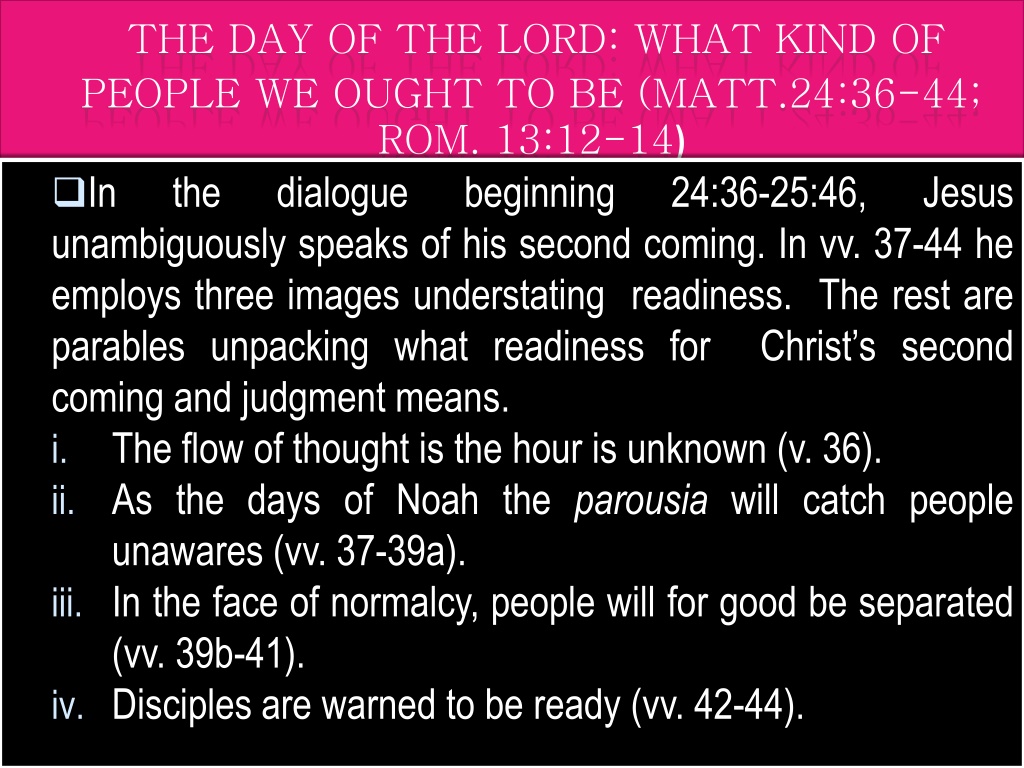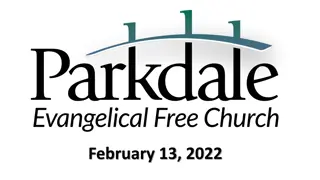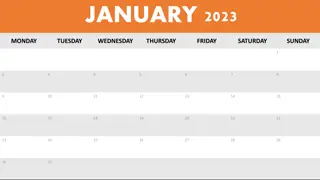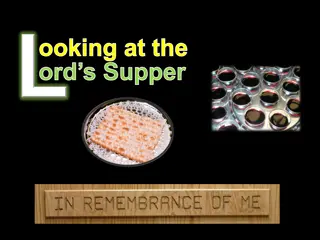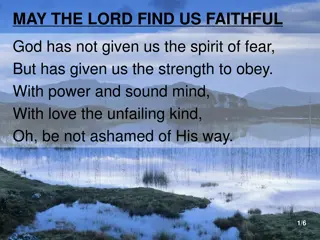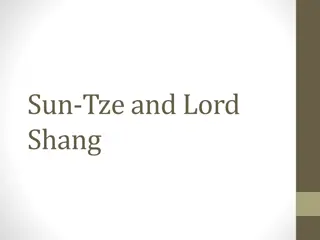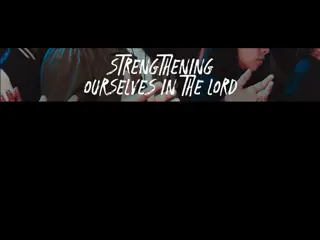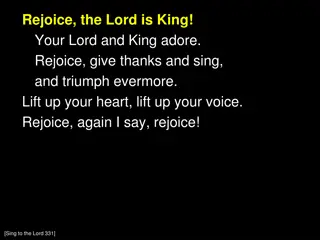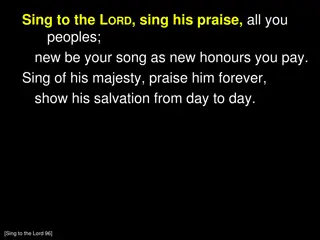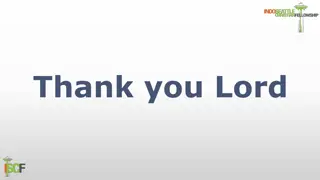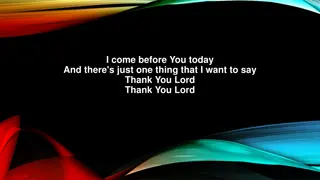The Day of the Lord: What Kind of People We Ought to Be
Jesus speaks of his second coming and emphasizes the importance of readiness by using the examples of Noah's time and the need for disciples to be vigilant. The unpredictability of the day of judgment is highlighted, urging people to be prepared for the separation of good and evil. Normalcy and sudden separation are compared with the parables of wheat and tares, emphasizing the necessity for constant watchfulness in anticipation of the ultimate separation.
Download Presentation

Please find below an Image/Link to download the presentation.
The content on the website is provided AS IS for your information and personal use only. It may not be sold, licensed, or shared on other websites without obtaining consent from the author. Download presentation by click this link. If you encounter any issues during the download, it is possible that the publisher has removed the file from their server.
E N D
Presentation Transcript
THE DAY OF THE LORD: WHAT KIND OF PEOPLE WE OUGHT TO BE (MATT.24:36-44; ROM. 13:12-14) In the dialogue beginning unambiguously speaks of his second coming. In vv. 37-44 he employs three images understating readiness. The rest are parables unpacking what readiness for coming and judgment means. i. The flow of thought is the hour is unknown (v. 36). ii. As the days of Noah the parousia will catch people unawares (vv. 37-39a). iii. In the face of normalcy, people will for good be separated (vv. 39b-41). iv. Disciples are warned to be ready (vv. 42-44). 24:36-25:46, Jesus Christ s second
The comingof the day will be unpredictable (vv. 36-39a) That day refers to the parousia which was the subject of second half of the disciples question in v. 3. Phrase also captures the frequent OT reference to the day of Yahweh. Reader can therefore place judgment and salvation as central in this day. Key about this day is that no one knows its timing. Consequently it will catch people unawares - like an earthquake, or historically like the days of Noah.
The coming of the day will be unpredictable (vv. 36-39a) Facts about Noah s time: i.A call was made, and it appeared unreasonable to majority that a flood should sweep everything. ii.As the scoffers of 2 Pet. 3:3-4 People continued in their usual life in ignorance of Noah s warning. iii.The flood came without warning and no effort to evade danger was successful. It is clear only those who made advance preparations were safe.
Normalcy and sudden separation (vv. 39b-41) Business will be as usual as was the case in Noah s time. In present day, evil and good, fraudster and honest students, injustice and justice live together side by side. Observe that some cars without starter motors appear to carry the day.
Normalcy and sudden separation Cont. . . Currently God has allowed wheat and tares to grow together (Matt. 13:30). That has its own danger though. In due time, the two will suddenly be separated. Meanwhile let him who does wrong continue to do wrong and so is the righteous (Rev. 22:11). People however must live in constant awareness that a grand reversal is coming. Once and for all we will be separated.
Need to be watchful (vv. 42-44) In light of the grand separation, what kind of people ought we to be? Watchfulness is mandatory. In Luke 12:35 Jesus gives two images; 1. That of guarding the loins 2. That of keeping lights burning In Palestine burglary was an every day menace. There were no burglar proof doors, walls or alarm systems. Physical readiness was therefore indispensable. Lack of alertness spelt out doom to property and danger to human life.
Need to be watchful (vv. 42-44) The parables of the faithful servant, the ten virgins and the talents illustrate how to be ready. Readiness does not consist of sitting by the window in a state of red alert watching for the master. To the contrary it is carrying on with the master s business faithfully whether he comes or not.
Ethical as opposed to reckless living Being ready must be understood ethically. The final scene in Matt. 25:31-46 will reveal that the criteria of judgment relate not to conscious alertness but to a life well lived. Not ritualistic . . . . Readiness is therefore a lifestyle that we embrace. Such touches on our dealings with fellow man and personal purity.
Ethical as opposed to reckless living In Romans 13:12-14, Paul uses darkness to designate acts of loose living. Flesh designates principle and power of life in this world which tends to pull us away from the spiritual realm. Drunkenness was closely immorality because drunkards senses are dampened. sexual immorality was rampant among Greeks. Brothels were not rare cites at the time of Paul. For the Jew it was a sign of lack of control, and a display of ones deficiency of sense/foresight/wisdom/mental power/consideration, determination, loyalty and will (Pr. 6:32). associated with sexual
Concluding remarks Delay has effects. In the parable of the ten virgins, delay generated slumber and running out of fuel. Difficult terrain encourages withdrawal from the race. Financial hard times and the craving for quick gains has and continues to shipwreck the faith of many. The seeming gains of the wicked pose a potential danger to the righteous (see Ps. 73). Alittle folly undermines integrity (Ecc. 10:1; Eph. 5:3).
